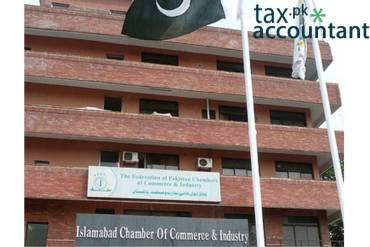In the ever-evolving landscape of Pakistan’s tax system, Section 7E Tax has emerged as a significant development for property owners. Introduced through the Finance Act of 2022, this provision has far-reaching implications for residents who own immovable property in the country. At TaxAccountant.pk Tax Consultants Islamabad, we are committed to keeping our clients informed about crucial tax matters. Let’s delve into the details of Section 7E and what it means for you.
The Essence of Section 7E
At its core, Section 7E imposes a tax on deemed rental income from immovable property situated in Pakistan owned by resident persons. The key aspect to understand is that this tax applies regardless of whether the property is actually generating rental income or not.
How It Works
For the tax year 2022 onwards, every resident person is considered to have derived income equal to 5% of the fair market value (FMV) of their capital assets (immovable property) in Pakistan. This 5% deemed rental income is then subject to a 20% tax rate. In simpler terms, this effectively translates to a 1% tax on the fair market value of the property. For instance, if a property has an FMV of PKR 50 million, the deemed income would be PKR 2.5 million (50 million x 5%), leading to a tax liability of PKR 500,000 (2.5 million x 20%).
Exemptions and Exclusions
While Section 7E casts a wide net, it’s important to note that certain properties are exempt from this tax. Understanding these exemptions is crucial for property owners to accurately assess their tax liabilities. The exemptions include:
- One capital asset: Typically, this refers to a residential property owned by the resident.
- Self-owned business premises: These are properties actively used for business by registered taxpayers.
- Self-owned agricultural land: This applies to land used for agricultural activities, excluding farmhouses.
- Properties allotted to martyrs’ families, war-wounded individuals, and ex-servicemen.
- Properties already taxed: If income from a property is already taxed under other provisions, it is exempt from the Section 7E tax.
- New acquisitions: Properties acquired in the first year where tax under section 236K has been paid are exempt.
- Aggregate value threshold: Properties with a total FMV not exceeding PKR 25 million are exempt from this tax.
- Government-owned properties: Properties owned by government entities, development authorities, and builders/developers are also exempt.
These exemptions are designed to alleviate the tax burden on certain categories of property owners and ensure that the tax system is equitable.
Procedure and Legal Challenges
Compliance with Section 7E requires taxpayers to declare their deemed rental income and pay the associated tax along with their annual income tax returns. The Federal Board of Revenue (FBR) has issued guidelines and circulars to clarify the procedure for payment of this tax.However, Section 7E has faced legal challenges across Pakistan. The Sindh High Court has upheld the tax, while the Lahore High Court and Islamabad High Court have struck it down. As a result, the applicability of this tax currently varies across provinces based on these court orders, creating a complex legal landscape for property owners.
Who Needs to Be Aware?
Section 7E is particularly relevant for:
- Resident individuals owning immovable property valued over PKR 25 million.
- Sellers and transferors of immovable property.
- Authorities responsible for registering property transfers.
- Tax professionals and advisors dealing with property-related matters.
For property sellers, it is crucial to provide evidence of having discharged the Section 7E tax liability when transferring property. This can be done by presenting a payment challan or a certificate from the Commissioner Inland Revenue.
Staying Compliant and Informed
At TaxAccountant.pk Tax Consultants Islamabad, we understand that navigating these tax provisions can be complex. Our team of experts is here to guide you through the intricacies of Section 7E, helping you determine your tax liabilities, claim applicable exemptions, and ensure compliance with all relevant regulations.As the tax landscape continues to evolve, staying informed and seeking professional advice is more important than ever. Whether you are a property owner, investor, or involved in real estate transactions, understanding Section 7E is crucial for effective tax planning and compliance.
Conclusion
In summary, Section 7E represents a transformative shift in Pakistan’s tax structure, targeting deemed income from immovable properties. Property owners must be vigilant in understanding their obligations under this provision, including the exemptions available to them. The complexities of compliance, coupled with the ongoing legal challenges, necessitate professional guidance to navigate this landscape effectively.For personalized guidance on Section 7E and other tax matters, don’t hesitate to reach out to us at TaxAccountant.pk Tax Consultants Islamabad. Our commitment is to provide you with expert, up-to-date advice to navigate Pakistan’s tax system with confidence.















One thought on “Seizing Opportunities: Mastering Section 7E Tax for Property Owners in Pakistan”